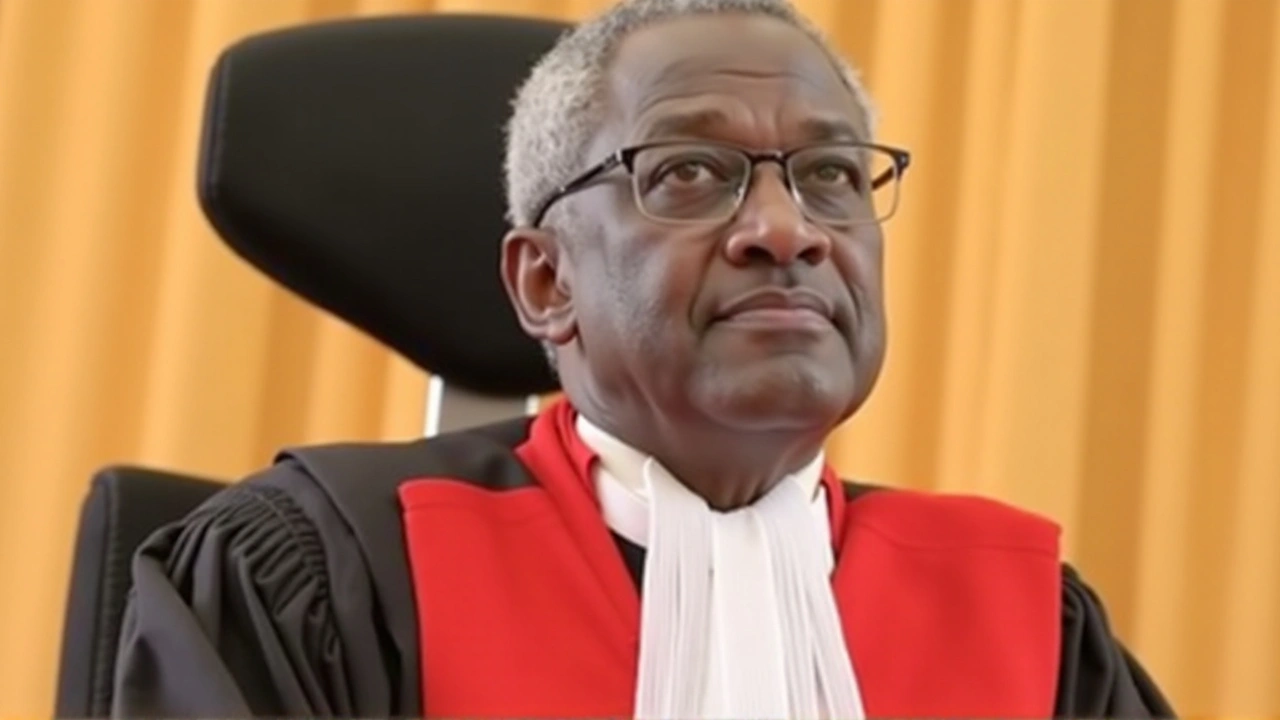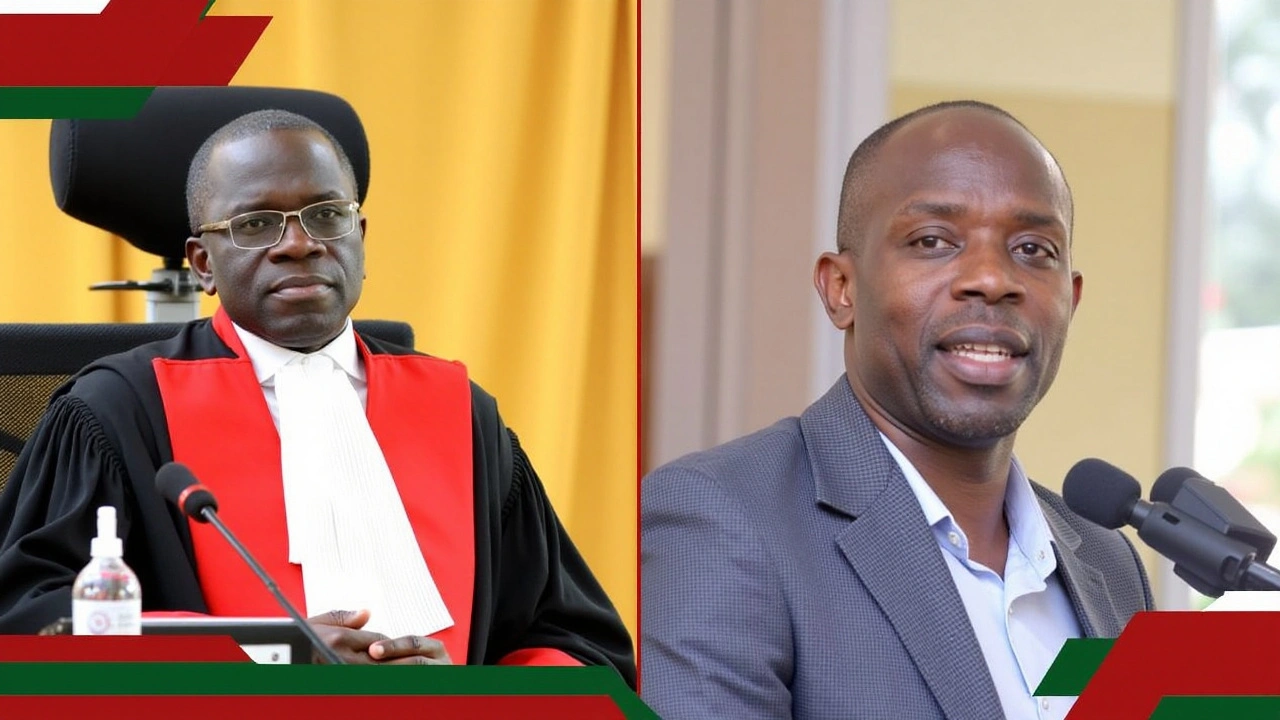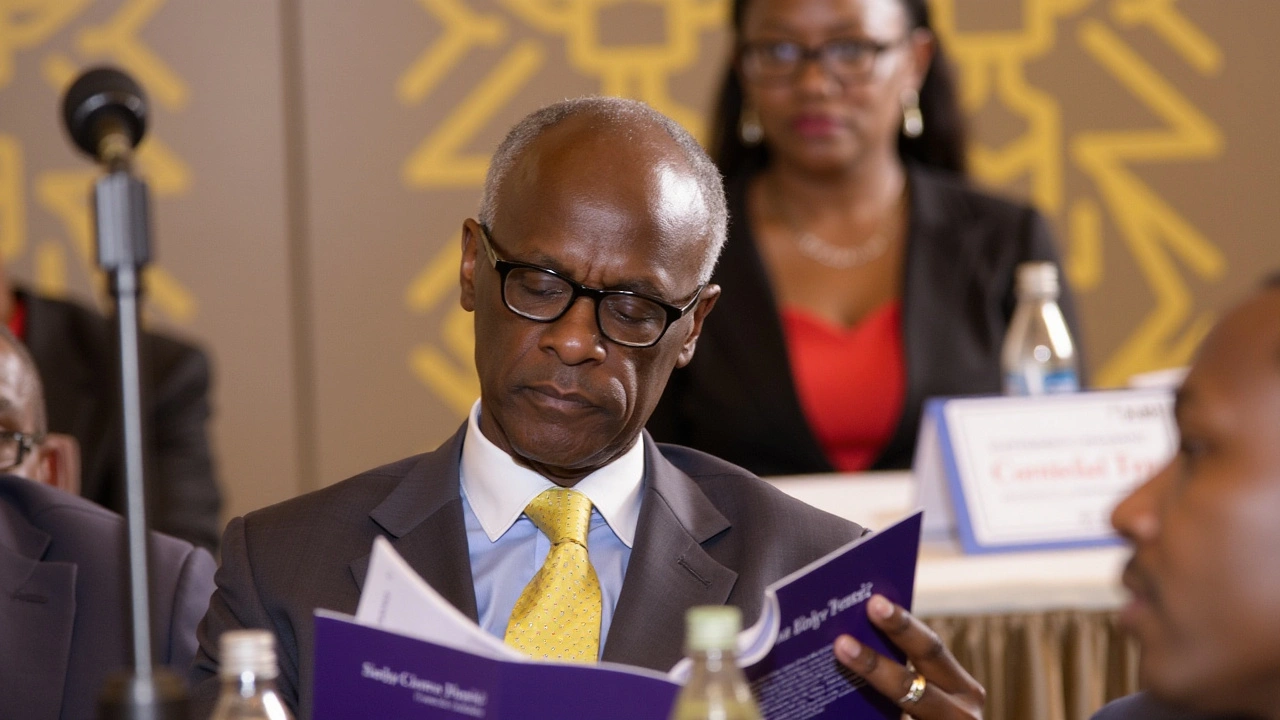Justice Lenaola's Concerns: A Wake-Up Call for Kenya's Judiciary
The Kenyan judiciary recently faced a significant challenge as Supreme Court Judge Isaac Lenaola voiced his concerns over the reliability of the nation's judicial online systems. At a pivotal moment, during the impeachment proceedings of Former Deputy President Rigathi Gachagua, the system experienced a critical outage that left many questioning its reliability. Speaking at the Regional Conference on the use of AI, Digital, and Social media in Kenyan elections, Justice Lenaola emphasized the urgency of understanding why a system that had been operational for only two years could potentially fail during times of political tension. He raised the question: "Why did that online platform collapse? Why did the firewalls that we created before 2022 suddenly become vulnerable?"
This enquiry is not just about pinpointing the technical deficiencies but also about ensuring the robustness of judicial operations as the nation approaches its 2027 General Elections. Lenaola's comments draw attention to a fundamental trust issue within the Kenyan judiciary's technological infrastructure, urging the need for more resilient solutions to maintain judicial processes and uphold democratic integrity. The potential implications could reach far beyond routine legal operations, affecting the core of Kenya's political stability if not promptly addressed.
A Moment of Crisis: Impact on Legal Processes
During the outage, three significant online platforms used in legal proceedings ceased to function: the e-filing system, the Case Tracking System (CTS), and the Cause list system. These systems play a critical role in the legal framework. The e-filing system enables legal practitioners to submit documents online efficiently, ensuring swift case processing. The CTS tracks case progress and stores essential court records, a backbone for transparency and accountability, while the Cause list system is responsible for generating daily court schedules, allowing judges and lawyers to manage their time effectively.
The sudden disruption of these systems caused an operational standstill, prompting the Judiciary to deploy alternative methods to manage urgent matters. However, this workaround was only a temporary fix, not a solution. Many saw this outage as not only a technological failure but a moment of deep political significance, marking a potential breach in judicial protocol during the fiercely disputed impeachment proceedings of Rigathi Gachagua.

Political Implications and Allegations
This technical breakdown coincided with a high-stakes political moment. During the impeachment proceedings, three petitioners—Miruru Waweru, Andrew Njoroge, and Mutonga Kamau—came forward with allegations of potential foul play. They claimed that the system's malfunction was part of a deliberate attempt to obstruct their petitions from being presented to a judge in a timely manner. As they stated, "It is our view that the systems were malfunctioning in a deliberate attempt to block our petition and application from being placed before a judge timeously until the National Assembly completed the approval of the President's deputy president nominee with intent to defeat grant of stay orders sought."
Such allegations provoke serious questions about the integrity of the judicial process and cast a shadow over the political legitimacy of the proceedings. If deliberate interference was indeed at play, the repercussions would not only damage public trust in the judiciary but also undermine the sanctity of democratic inquiries. These events further highlight the necessity of implementing robust security measures and ensuring absolute transparency, especially as Kenya braces for the upcoming 2027 elections.
Strategic Insights and the Way Forward
Justice Lenaola's pointed remarks serve as a clarion call for a re-evaluation of the current systems in place. As the country anticipates its next elections, the need for fortifying judicial online systems against potential disruptions becomes imperative. Confidence in these systems is not merely about smooth day-to-day operations; it ensures that citizens' democratic rights remain protected and that the electoral process is upheld with integrity.
The situation calls for immediate attention from both technological and administrative fronts. Strengthening security protocols, conducting rigorous audits of existing systems, and investing in fail-safe mechanisms are practical steps that could prevent future outages. Additionally, fostering a culture of transparency and accountability within the judiciary can help rebuild trust among the Kenyan populace.

Conclusion: Ensuring Stability and Trust
The outage experienced during the proceedings involving Rigathi Gachagua was a stark reminder of the vulnerabilities inherent in technological dependencies. While technological advancements have undoubtedly revolutionized the legal field, safeguarding these advancements from potential exploitation remains a top priority. The incident underscores the necessity for vigilant monitoring and continual enhancements to ensure these outages do not recur at critical junctures.
Justice Lenaola's remarks are not just reflections on a localized failure but a strategic insight for the entire judicial system in Kenya. Addressing these concerns head-on now can set a benchmark for future stability and robustness, ensuring that the country's legal and political frameworks stand strong in the face of upcoming challenges and that the judiciary remains a pillar of democracy and an exemplar of fairness and reliability in East Africa.






Write a comment